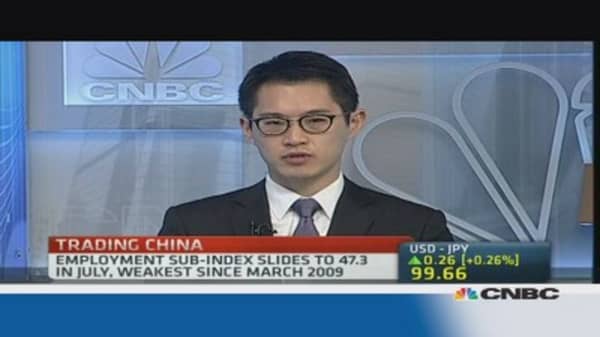Investors are getting complacent about the likelihood of a China hard landing this year, which has become a real and "non-negligible" risk, investment bank Societe Generale (SocGen) has warned.
In the bank's extreme scenario, Chinese growth could plummet to under 6 percent this year, and as low as 3 percent in the second half of 2013 and the first half of 2014. In such an event, base metals will crash by 40 percent.
(Read more: Is China about to launch a new round of stimulus?)
"We think many investors may still be relatively complacent about the risk of a hard landing. This could prove a costly mistake," SocGen said its July strategy report.
The bank stressed, however, that a hard landing is an extreme view; the bank's core projection remains that China would have more of a "bumpy landing over the medium term where growth grinds persistently lower from 7.4 percent in 2013 to 6 percent in 2017."






